FREE DOWNLOADABLE PLAN BELOW
10 Reasons I Love Tea Time
Tea Time was not something we have always done as a family and it certainly wasn’t anything I grew up with. Although, I will say an introduction to the arts and things of beauty was definitely a part of my childhood in many ways. It wasn’t until later in life that I realized what a gift this was that not all children were privy to. One of my finest memories as a child most closely linked to a tea time experience, would probably be awakening on Sunday mornings to classical masterpieces put on the stereo system by my dad- Handel’s Water Music being my personal favorite- and sharing in cinnamon buns as a family before heading out to church. There was a formality, a ritual, and a comforting expectancy to this Sunday morning routine that has left a lasting imprint on my heart.
So how and why did we begin this rhythm in our family? For starters, I saw it modeled by other seasoned homeschool mamas, and something about it intrigued me. So after a few years of working it out and working it into our family’s unique persons, values, goals and rhythms, I feel like we have begun paving the way of a truly special, (dare I say- sacred!), set-apart time to rest, gaze, reflect, commune, fellowship and dwell together in many different outpourings of the true, the good and the beautiful.
So here you have it…
10 Reasons I Love Tea Time!
- It gives me a platform to teach, discuss and practice manners and etiquette.
A well rounded education, must also be a social education. (What- wait don’t we homeschool? Yeh- it’s a myth that homeschooled kids aren’t socialized, but I’ll hit that up more in another post someday!) Manners, politeness, etiquette, protocol- they all are, in the genuine form, languages of the heart with the purpose of actively fulfilling the good ol’ Golden Rule. “Do unto others as you would want others to do to you.” It is an unselfish regard for the feelings of others. But these things don’t come natural to us and sometimes may not even be obvious to us, especially to our children. By introducing these ideas and practicing them, we become more aware of the ways our actions can be perceived by or impact another. We do these things, and educate our children socially, because ALL people are created in God’s image, and, therefore, have value and worth. We want to honor people in our interactions with them. Faithfulness in the small things will have their reward.
2. It gives me a reason to bake and impart kitchen skills with my crew.
I used to bake ALL the time with my kids, but that was when there were less of them, when they were younger and there was less pressure to get in the required lessons and commitments. (Although this is something I continue to keep circling back to in my heart- the more I cut back, the more I feel there is still more to cut…perhaps, yet another talking point some day.) But seriously, cooking and baking is definitely a skill I want my children to have, and not only experience, but be confident in. If I have a monthly or bi- monthly time allotted for this, it is more likely to happen, and in a manner that isn’t just thrown together at the end of the day when, well, we are all perhaps, not at our finest, and instruction may not be as clearly delivered, if you know what I mean.
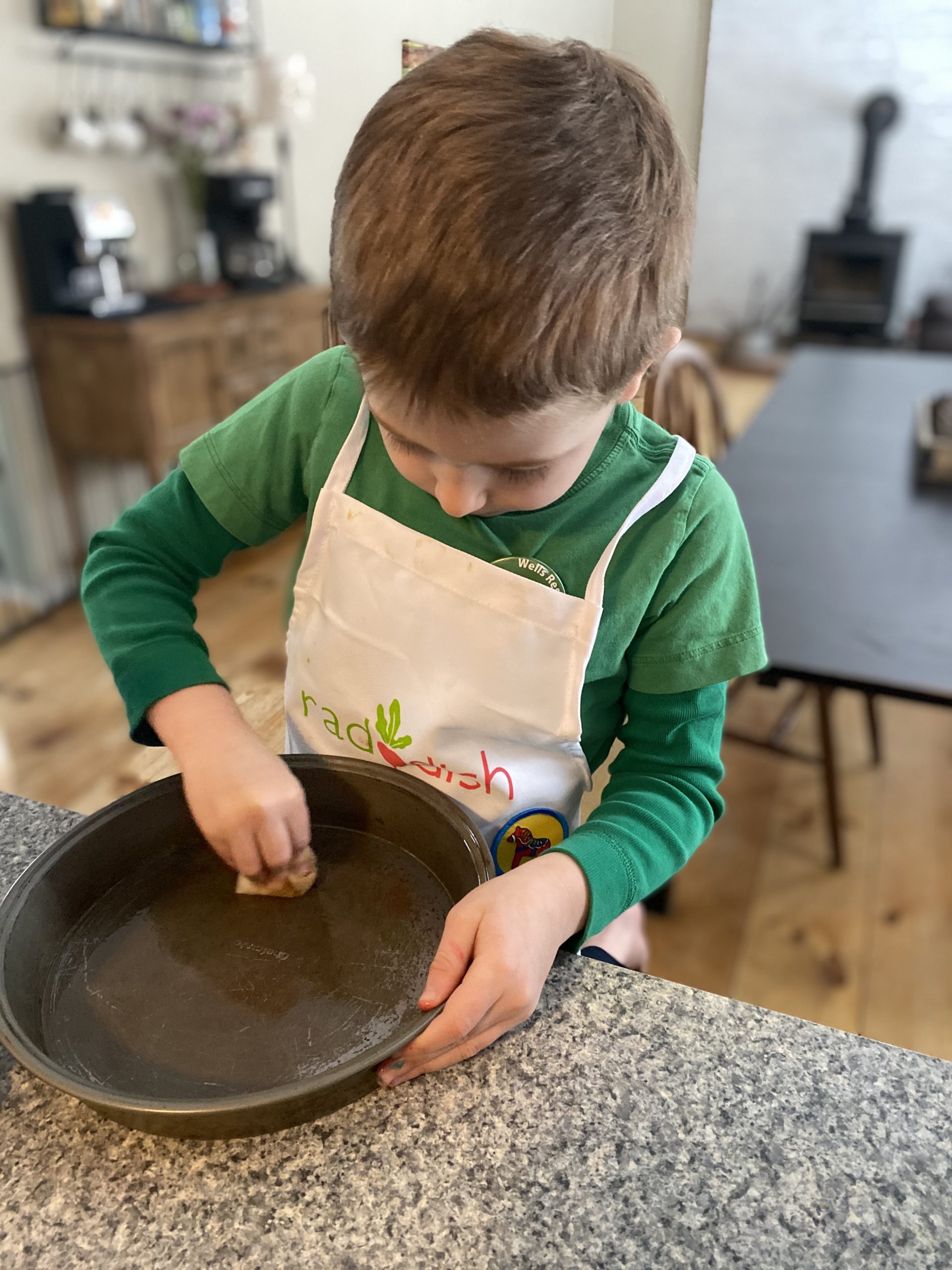
3. We feast on yummy food.

Yup- I like scones. They are good. I like having a reason to eat them. With that said, the food matters. Not in the sense that it has to be elaborate, but in the sense that there is something about coming around the table and sharing in conversation AND food. It adds to the atmosphere. And, with little ones, it keeps them engaged…longer. And, I definitely work it to my advantage. The sweets get served LAST, and they know it isn’t good manners to ask for something to be served before the host offers it. (Refer back to #1, why I love tea time!)
4. We not only feast on special foods, but we feast on beautiful ideas.
“We spread an abundant and delicate feast in the programmes and each small guest assimilates what he can.”
(Charlotte Mason, Vol. 6, p. 183).
“In devising a syllabus for a normal child, of whatever social class, three points must be considered….He requires much knowledge, for the mind needs sufficient food as much as does the body. The knowledge should be various, for sameness in mental diet does not create appetite (i.e., curiosity). Knowledge should be communicated in well-chosen language, because his attention responds naturally to what is conveyed in literary form.”
(Charlotte Mason, Vol. 6, p. 154)
Well put Charlotte Mason! (Who is Charlotte Mason? Click here to learn more). Tea Time gives me the opportunity to present varied, flavorful, savory, sustaining and soul-nourishing truths through prayer, Bible reading, poetry, literature, music, art and discussion. Hopefully whetting the appetite of learning in the hearts of those present, with the ultimate end goal of cultivating a space for worship, thanksgiving and praise.
4. The “set apartness” of this time draws us into a place of deeper contemplation as a family.
This time is special. It is different from our normal school time and family rhythms. You have to be invited. Our two year old has not been invited yet. My boy has joined us in our tea times since he was four, with the understanding that he was being invited to the table as prince and I expected him to act as such out of respect for others and the space and time, by and through God’s grace, we were seeking to enter into. He has lost his privilege to commune at the table with us…once. He was so devastated, he hasn’t lost the privilege again. Special times call for us to dig down deep for a self- discipline and concentration that we aren’t often aware we possess, and we arise to the occasion.
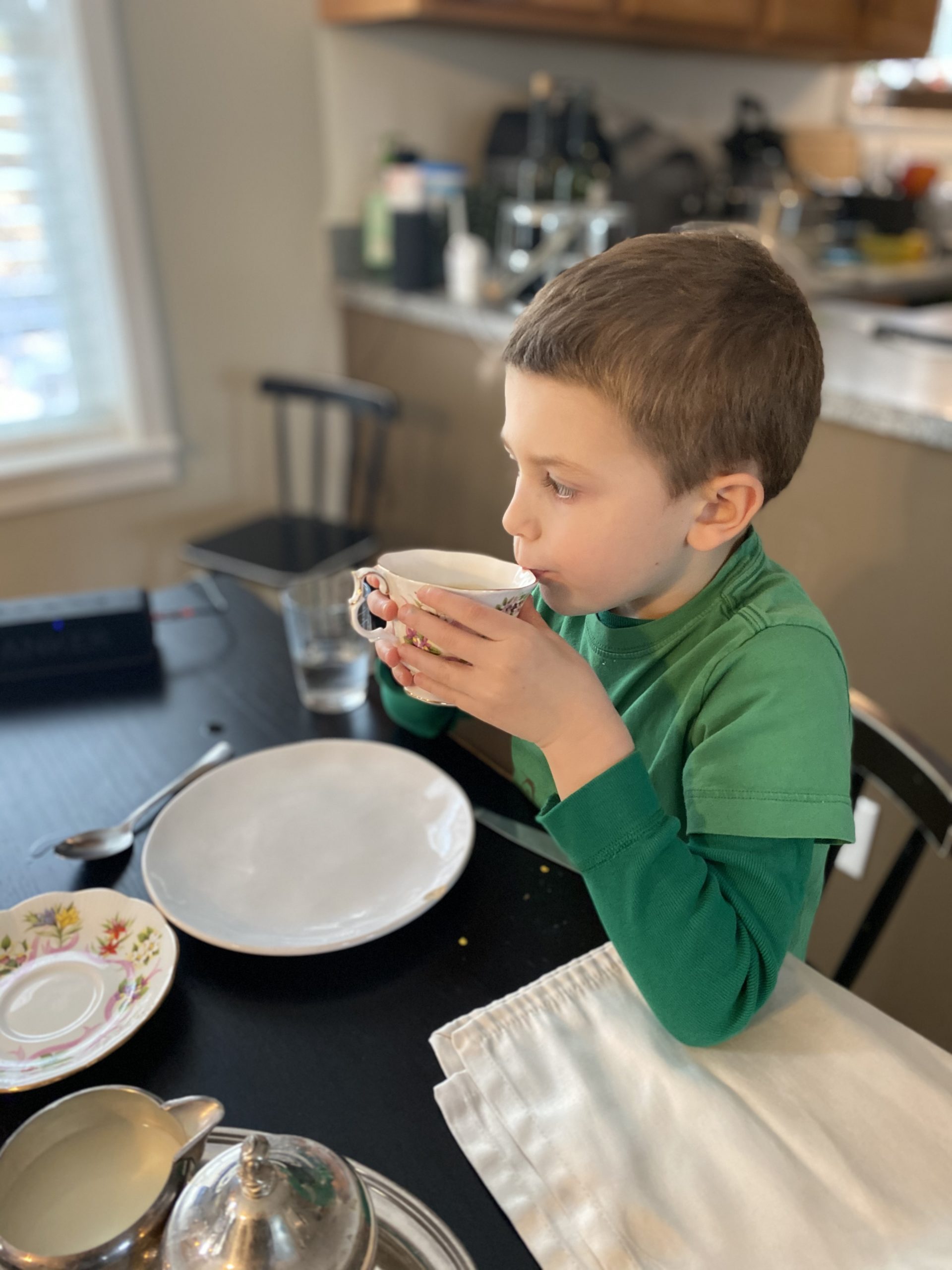
6. As we open up our hearts to receive truth, goodness and beauty, we also engage our minds, and thus, share in engaging and enlightening conversation, which in turn nourishes our souls.
I am almost ALWAYS astounded at what comes out of these kids hearts during this time. I leave our tea times feeling like I have learned more from their keen observations, innocent reflections and staggering connections than they have gleaned from me. Children are deeper wells than our current culture likes to believe. But like a well, the water needs to be drawn out, and we have to create space for that.
7. We grow in intimacy and fellowship with one another.
In communing together over shared experiences our hearts become more knit together. I learn more about the inner workings of their thoughts and they mine. We become less individual and more united.
8. We long and yearn for it when weeks fly by and we haven’t had the opportunity to commune in this way.
All I can say, when you encounter truth, goodness and beauty (which is GOD), you will desire to encounter it again. Our soul yearns for connections with our Creator. I think Psalm 84 says it best,
“How lovely is Your dwelling place, O Lord of hosts! My soul longs, yes, even faints for the courts of the LORD; my heart and flesh sing for joy to the living God.”

9. The impact left by these times together far outweighs just reading about it in a book, the benefits of which I can see manifest itself in various ways in our learning later on.
When learning connects not only in the mind, but also in the heart its impact is greater. The experiences and conversations we have shared over our tea times continue to pour into our present learning journeys. Stories, images, words, songs- they all weave themselves into our daily lives giving wings ideas that might not have taken flight otherwise.
10. It gives us a glimpse of scholé, the restful and contemplative learning spoken about in scripture and so sought after by the ancient Greeks.
Scholé in the words of Dr. Christopher Perrin, a leader in the classical education movement, is “undistracted time to study the things most worthwhile.” It is a slower learning shifting from assessment focused to delight focused. Or, as Josef Pieper, a German philosopher writes, scholé is a “contemplative beholding.” It is the practice of opening one’s self up to receive insight and truth and to see this as a gift. (There is SO much more to come on the concept of scholé some day soon as well, I hope!)

So, are you ready to try this out? Check out some of our themed family tea time liturgies in the shop. Each tea time will take about 45 minutes to an hour, with options for possible extensions if you have older learners.
Also, be sure to check out my other blog posts about the practical “how tos” of tea time with…well…children who…well…don’t always follow the plans of how we hoped for things to go. Imagine that? But in all truthfulness, this takes practice. It won’t go perfectly the first time, or maybe even ever, but it is so worth the effort, the struggle and the fight to set aside time to intentionally fix our eyes together as a family on the things above. Be encouraged, friend!
If you have any questions on how we have utilized tea time in our home please don’t hesitate to email me at [email protected]

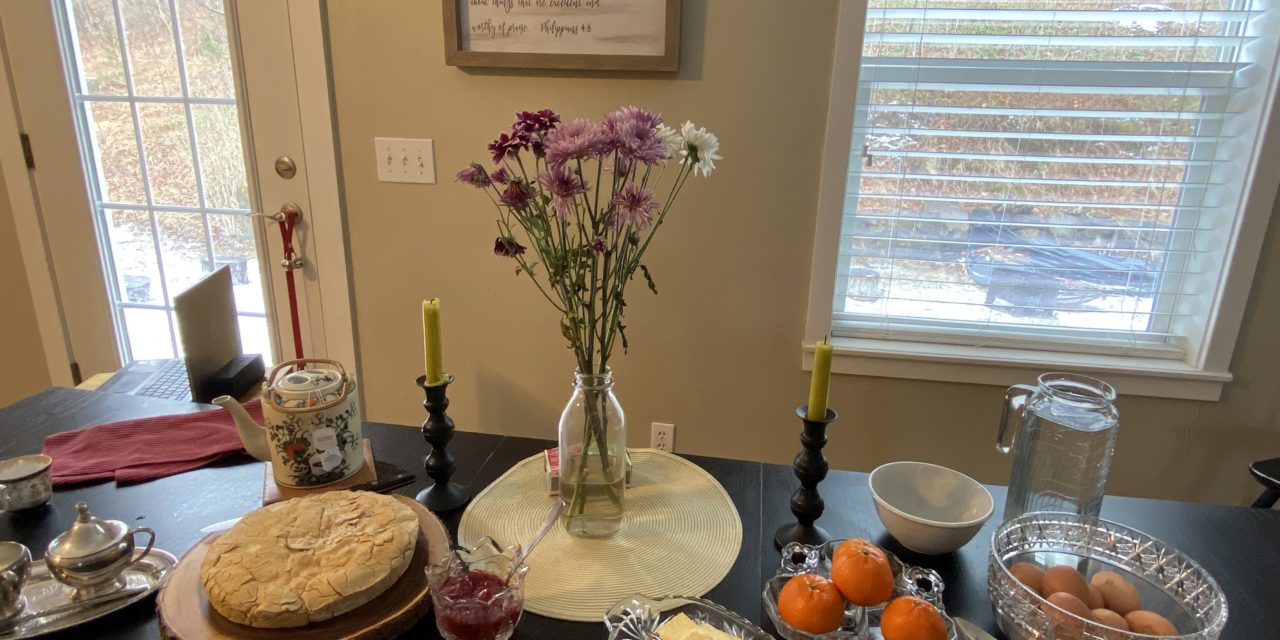
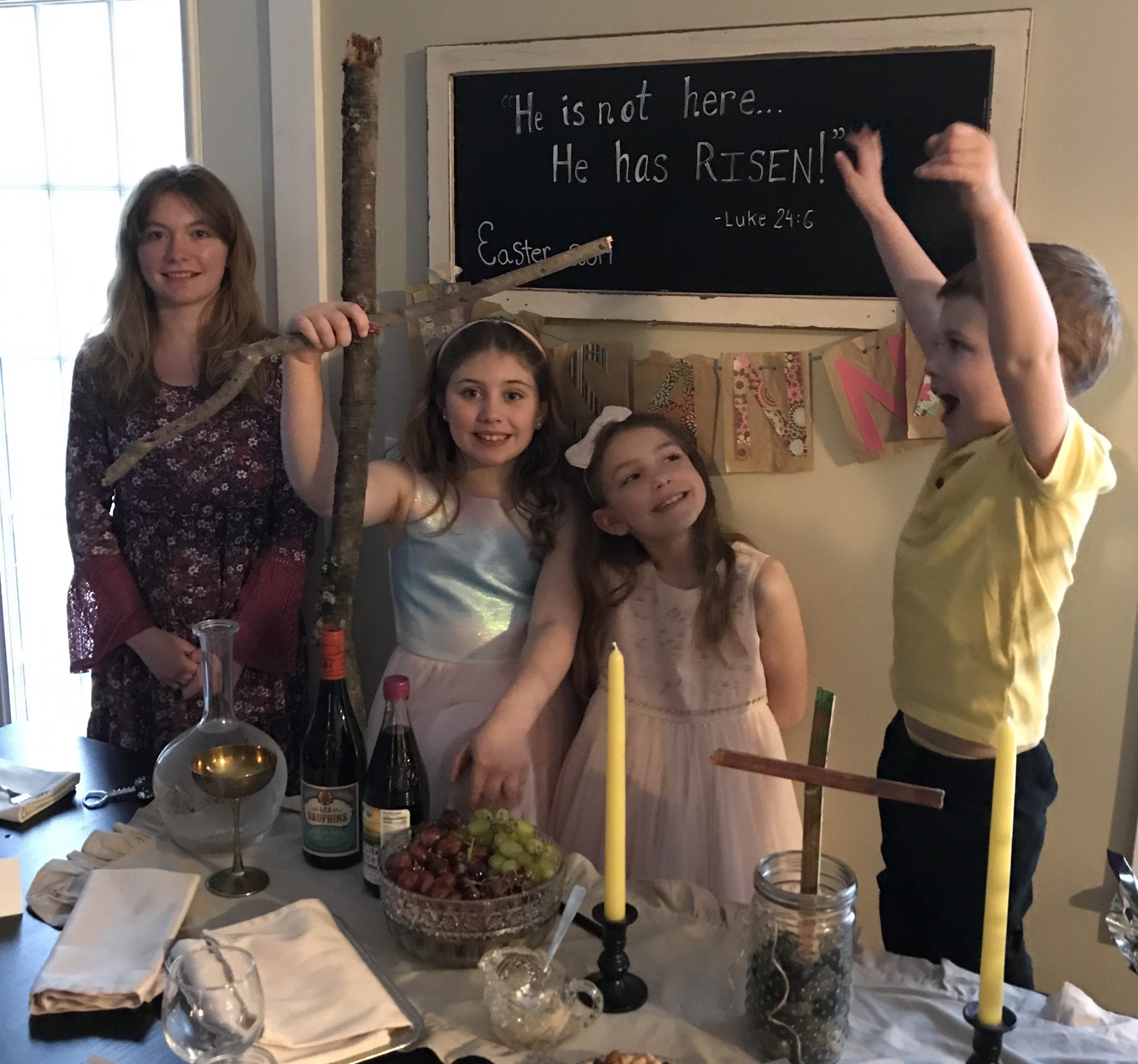
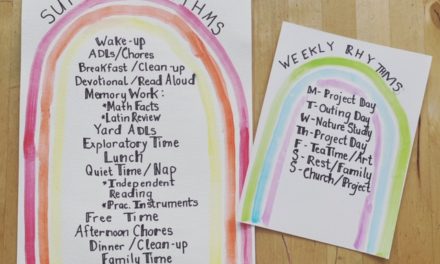


Recent Comments